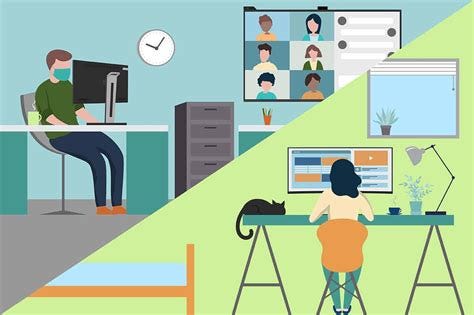Are you an Early Bird or a Night Owl?
Finding Your Balance Between Morning and Evening Productivity

In recent years, early rising has ascended to near-cult status in professional circles. This was discussed in an article in The Economist in June this year, and it seemed like an interesting subject to write about at 06:30 on a Sunday morning (when I am writing this).
Much has been made of chief executives like Apple’s Tim Cook and Disney’s Bob Iger, who famously rise before dawn. Many argue that the benefits of an early start go beyond clearing the morning inbox or easing into the day before meetings pile on. But not everyone’s productivity peaks with the sunrise. For those whose internal clocks favour a later start, the benefits of “joining the dawn club” may seem less obvious.
This debate between early risers and night owls goes beyond individual schedules, impacting work-life balance, office norms, and even our assumptions about productivity. With flexible and hybrid working models becoming the norm, the traditional 9-to-5 structure is evolving. The key, then, may not be about whether it’s better to wake up early or late, but rather about finding what works best for each person and workplace.
The Case for Early Rising
Research supports the notion that early risers often enjoy greater physical and mental well-being. Early studies by Renée Biss and Lynn Hasher of the University of Toronto indicate that early birds tend to be healthier and report higher levels of life satisfaction. The quiet hours of the morning, free from interruptions, offer a prime time to reflect, plan, and dive into tasks before the day’s demands kick in.
An early morning routine can provide structure, which some argue is a valuable tool for managing stress. Mornings can be a time for exercise, meditation, and other rituals that centre people before a busy day. Some studies even suggest that early risers may have a slight edge when it comes to earnings; research by Andrew Conlin from the University of Oulu (Finland) shows that those who start their days early tend to earn more, though the exact reasons remain unclear.
But for all its perks, early rising isn’t without drawbacks. If the early riser spends their mornings completing tasks before their colleagues are even awake, they may find themselves with more work throughout the day. An early start may mean an early end, but many still work late into the evening, especially in industries where responsiveness is key. Furthermore, the satisfaction early risers feel can be undercut if they find themselves unable to socialise or stay alert for post-work events—a common frustration.
“Early to bed and early to rise makes a man healthy, wealthy, and wise.”1 - Benjamin Franklin
or
“Morgenstond heeft goud in de mond” - well known Dutch expression meaning: “The early morning has gold in its mouth”2
The Appeal of Waking Up Later
For night owls, productivity may peak after the sun sets. Although night owls are often stereotyped as less disciplined, many thrive when they’re allowed to follow their natural schedules. A study by Jessica Dietch at Oregon State University found that respondents viewed night owls as “lazy” or “undisciplined,” but these perceptions are increasingly out of touch in a flexible work environment.
Night owls may benefit from a less frenetic start to their day, avoiding the early rush and pressure to tackle emails first thing in the morning. This delayed start allows them to work with a steady momentum, sometimes resulting in a productive and creative late-night surge. Research even shows that night owls have certain social advantages. Christoph Randler’s studies at Heidelberg University indicate that men who stay up later report higher levels of social engagement, including dating success—a phenomenon that resonates with the notion that social events often happen in the evenings.
The risks, however, include being out of sync with colleagues and family members. A night owl’s peak hours may not coincide with the working world’s standard 9-to-5 framework, leading to potential misalignment with team meetings and collaboration. Furthermore, studies show that chronic night owls may be more susceptible to health risks associated with irregular sleep, such as higher rates of depression and weight gain.
“Never waste any time you can spend sleeping.”3 — Frank H. Knight
Flexibility in the Hybrid Office
The widespread adoption of hybrid work models has opened up opportunities to rethink traditional schedules. Now, individuals have more autonomy in deciding when to work, accommodating both early birds and night owls in ways that weren’t possible before.
For early risers, the freedom to start work from home before sunrise means they can front-load their tasks and be available for team meetings later in the day. They might appreciate working in solitude in the early hours, free from the background buzz of an office. Similarly, night owls can use the late evening hours to finish tasks without facing the same kind of interruptions typical in the office environment.
Yet, the balance is not always easy to achieve. In a hybrid setup, collaboration remains vital, and flexibility alone doesn’t address the coordination needed among team members with different schedules. The role of middle managers in setting expectations becomes critical: they need to encourage mutual respect for diverse working patterns while ensuring cohesion.
Beyond the Office: At-Home Productivity
While early starts have a clear benefit in the office, the story changes at home, where morning routines can be more restorative and less about performance. Many early risers enjoy waking up before the household stirs, giving them time for exercise, mindfulness, or planning. For others, a slow start offers a reprieve from a hurried morning, allowing them to recharge.
The so-called “5 a.m. club” has been popularised by influencers who share their highly structured, sometimes extreme morning routines on social media, involving cold plunges, protein-packed breakfasts, and rigorous exercise. While these regimens inspire some, they don’t suit everyone. Many people find value in a slower start, especially those managing family routines or caring for children. A rigid schedule can add unnecessary pressure, particularly if it means missing out on valuable sleep.
For night owls, a later start at home might translate to having the energy and mental clarity to tackle personal projects or household tasks. Without the early pressures of the workplace, night owls may feel freer to follow their rhythms, finding that they’re more focused and efficient later in the day.
“I have measured out my life with coffee spoons.”4 — T.S. Eliot
A More Inclusive Approach to Time Management
The push for early rising in corporate culture raises a critical question: should success be tied to a specific time of day? The reality is that personal chronotypes vary greatly, largely dictated by genetic factors. Studies on chronotypes reveal that while some people perform best in the morning, many fall into an intermediate category, meaning they don’t peak at dawn or late at night.
Rigid expectations about working hours can create stress for those who don’t naturally align with the early-bird ethos. Hybrid work, if properly managed, could foster a more inclusive and productive environment by recognising these differences. Rather than penalising employees for starting later, organisations can focus on output and results.

Conclusion: Find What Works for You
The best approach to productivity may not be as simple as waking up at the crack of dawn or staying up late. Instead, individuals should aim to understand their own rhythms, harnessing their energy peaks and respecting their natural patterns. For some, this may mean starting at sunrise and savouring the early quiet; for others, it may mean making the most of the evening hours.
In our increasingly flexible workplaces, there’s room to embrace diverse approaches to productivity. The real trick is for each of us, whether an early riser, a night owl, or somewhere in between, to find the schedule that best supports our work-life balance. Rather than prescribing one “right” time to start the day, companies and individuals alike stand to benefit from a more adaptable and inclusive view of time—one that allows every worker to shine, regardless of when they wake.
This classic line from Franklin extols the virtues of an early start, suggesting it brings health, success, and wisdom. It has often been used to champion the benefits of discipline and the supposed productivity advantages of an early rise
In Dutch we have the expression: “Morgenstond heeft goud in de mond”, which captures the idea that early mornings are rich with opportunity, emphasizing the unique clarity and potential of the day’s first hours. It’s a poetic reminder of the rewards awaiting those who embrace an early start.
Frank Knight, an influential economist, takes a light-hearted swipe at the notion of constantly maximizing productivity, hinting that rest itself is a valuable pursuit. It’s a reminder that sleep, often underrated in hustle culture, is as essential to success as hard work.
This line from Eliot’s poem “The Love Song of J. Alfred Prufrock” captures the feeling of life’s routine rhythms and the quiet ritual of mornings. It reflects the often bittersweet appreciation of early morning habits and their role in daily life




